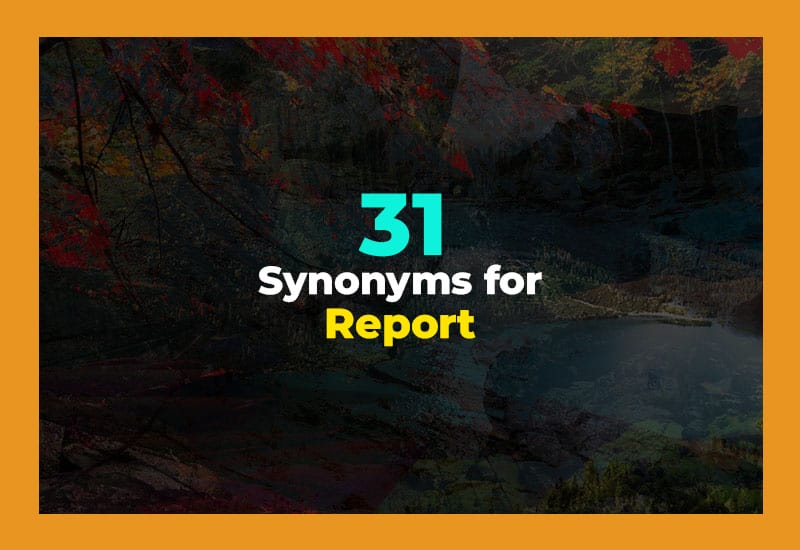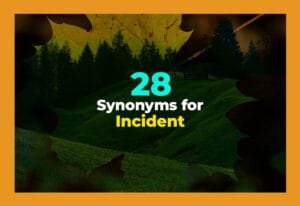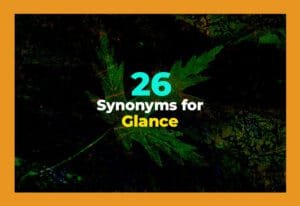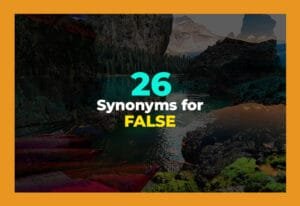You often need to share information clearly and effectively. Whether you’re writing a report, delivering news, or summarizing findings, using the right words can make your message stronger. This guide will introduce you to 31 of the best synonyms for report to help you express your ideas in fresh and engaging ways. Each synonym comes with clear examples to show you how to use them naturally in sentences.
1. Account
An account is a detailed description or explanation of events or experiences. It often presents what happened in a clear and organized way. For instance, if you attended a conference, you might write an account to share what was discussed and the main points covered. People use accounts to tell stories or explain facts in a way that others can understand easily. For example, "She gave an account of the project’s progress," means she described the current status carefully, helping others know what has been done. Accounts are useful for sharing first-hand experiences or detailed information.
2. Announcement
An announcement is a formal or public statement that shares important news or updates. It's often used when organizations or individuals want to inform many people at once about something new or important. For example, "The school made an announcement about the upcoming holidays." Announcements are usually brief and direct, designed to quickly deliver key information. Whether it's a new product launch, change of schedule, or important event, announcements help make sure everyone is aware of what's happening. They are essential for clear, official communication.
3. Brief
A brief is a short, clear summary of important points or information. It highlights the main facts without going into too many details. For example, "The lawyer gave a brief on the case before the trial." Briefs are often used in business, law, or media to quickly inform others about something complex in a simple way. A brief helps busy people understand the key ideas fast. When you provide a brief, you focus on what matters most so the audience can grasp the message immediately.
4. Bulletin
A bulletin is a short report or announcement, often published regularly to share news or updates. It is commonly used by schools, companies, or news organizations to keep people informed about recent events or changes. For example, "The community center released a bulletin about upcoming activities." Bulletins are easy to read and focus on timely or urgent information. They help keep groups connected by delivering quick updates. Bulletins can be printed, posted online, or sent by email to make sure everyone stays in the loop.
5. Chronicle
A chronicle is a detailed, ordered record of events that happen over time. It's like a diary or history that explains what took place step-by-step. For example, "The book is a chronicle of the city's history from its founding." Chronicles are important for preserving facts and stories in the order they happened, making it easier to understand how events unfolded. They are used in history, journalism, and storytelling to give readers a clear picture of past events. A chronicle helps capture both small moments and big changes.
6. Communication
Communication is the act of sharing information, ideas, or feelings between people. It can happen through speaking, writing, or other methods like gestures or images. For example, "Good communication is key to a successful team." When used as a synonym for report, communication means passing along important information clearly and effectively. Without communication, it's hard to work together or understand one another. Effective communication ensures that everyone gets the right message and avoids confusion.
7. Commentary
A commentary is a detailed explanation or discussion about an event or topic, often including personal opinions or analysis. For example, "The reporter provided a commentary on the election results." Commentaries help people understand not just what happened but why it matters. They add depth to reports by including insights or thoughts from an expert or observer. This makes them popular in sports, news, and academic fields, where understanding the background or impact of events is important.
8. Disclosure
Disclosure means revealing important or private information openly, especially in business or legal contexts. For example, "The company made a disclosure about its financial losses." Disclosures help ensure honesty and transparency by sharing facts that others have the right to know. This term is often used when sensitive information needs to be communicated clearly and formally. Disclosures protect people by making sure no critical information is hidden, helping others make informed decisions.
9. Dispatch
A dispatch is a message or report sent quickly to share news or information, often from reporters or officials on the scene. For example, "The journalist sent a dispatch from the disaster area." Dispatches provide timely updates about important events, usually with urgency and accuracy. They are used in news media, military, and emergency services to communicate real-time information. A dispatch keeps people informed about what's happening as it happens, which can be critical in fast-moving situations.
10. Documentation
Documentation refers to written records, papers, or digital files that support facts, instructions, or evidence. For example, "The project requires proper documentation to track progress." Documentation is important because it helps prove what has been done and guides future actions. It includes manuals, reports, receipts, or any material that provides details needed for understanding or proof. Good documentation makes sure that information is saved and shared in an organized way for reference or legal reasons.
11. Explanation
An explanation is a clear statement that makes something easier to understand by describing it in detail. For example, "The teacher gave an explanation of the math problem." When people need to learn new ideas or understand rules, explanations help by breaking down complex information. Providing an explanation is useful in reports to clarify why something happened or how something works. A good explanation answers questions and removes confusion, making the information accessible to everyone.
12. Findings
Findings are the results or discoveries from research, studies, or investigations. For example, "The report summarized the findings of the survey on customer satisfaction." Findings present facts or conclusions based on careful work and analysis. They show what has been learned and often guide decisions or next steps. Findings are essential in scientific reports, business research, and many professional fields where evidence-based conclusions are necessary.
13. Follow-up
A follow-up is an action or message that happens after an initial event to check progress or provide more details. For example, "After the interview, the recruiter sent a follow-up email." Follow-ups are important to ensure that everything is moving smoothly and that any questions or problems are addressed. In reporting, a follow-up adds to previous information, helping keep the conversation or work ongoing. It shows responsibility and attention to detail.
14. Gazette
A gazette is an official publication or newspaper that shares news, laws, or announcements, often from governments or organizations. For example, "The new law was published in the official gazette." Gazettes serve as trusted sources for legal and public information. People use them to learn about regulations, government decisions, or important events. They are formal and reliable, helping keep the public informed in an official way.
15. Information
Information refers to facts, details, or knowledge about a subject. For example, "The website provides information about travel options." When you give a report, you are sharing information so others can learn or act. Information is the basic building block of any report because it tells people what they need to know. It can be simple or complex but is always meant to help others understand something better.
16. Intelligence
Intelligence is useful or important information, especially for security, business, or government decisions. For example, "The team gathered intelligence about the competitor's strategy." Intelligence involves collecting facts carefully to help people plan or respond. It often includes secret or sensitive details. In reports, intelligence is valuable because it helps decision-makers understand risks, opportunities, or threats clearly.
17. Journal
A journal is a daily or regular written record of events, thoughts, or activities. For example, "She kept a journal of her daily work experiences." Journals provide ongoing reports that document progress or personal reflections. People use journals to track their work, study, or emotions over time. Unlike formal reports, journals are often personal but still give detailed accounts of what happened.
18. Log
A log is a systematic and organized record of activities, events, or data, usually kept regularly. For example, "The driver kept a log of all the deliveries made." Logs are used to track information accurately over time. They help with monitoring, planning, or reviewing what has been done. Logs are common in transportation, medicine, and technical fields because they provide clear, factual reports.
19. Memorandum
A memorandum or memo is a short, formal written message used within organizations to share information. For example, "The manager sent a memorandum about the new safety rules." Memos are clear and to the point, often used for reminders, announcements, or instructions. They help employees or members stay informed quickly without lengthy reports.
20. Message
A message is any piece of information sent from one person to another, whether spoken, written, or digital. For example, "She left a message about the meeting time." Messages can be formal or informal and are meant to communicate news, questions, or instructions. In a broad sense, reports can be messages that deliver important facts or updates to others.
21. Narrative
A narrative is a story or description of events arranged in a clear order. For example, "The report included a narrative about the rescue operation." Narratives make reports more engaging by telling what happened step-by-step. This helps readers follow the sequence of events and understand the context better. Narratives are useful in many types of writing, from news to personal stories.
22. News
News is new information about recent events or developments. For example, "The news reported the latest weather conditions." News reports keep people informed about what is happening around them. They are often shared by media like newspapers, TV, or online platforms. News is timely and focuses on facts that matter to the public.
23. Notice
A notice is a written or spoken announcement designed to inform people about something important. For example, "The company posted a notice about changes to office hours." Notices are usually brief and clear, made to catch attention quickly. They can be official or informal but always serve the purpose of sharing important information.
24. Overview
An overview is a general summary that covers the main points of a subject without going into detail. For example, "The report gave an overview of market trends." Overviews help people get a quick understanding of a complex topic. They provide a big-picture view that is easy to grasp, making them useful in presentations or introductions.
25. Paper
A paper is a detailed written document that discusses or reports on a specific topic. For example, "She wrote a paper on climate change effects." Papers are common in academic and professional settings where in-depth study or explanation is needed. They present facts, arguments, and conclusions clearly and formally.
26. Presentation
A presentation is a formal sharing of information to an audience, often with visuals like slides. For example, "He gave a presentation on the company's annual performance." Presentations help communicate reports clearly by combining spoken words and images. They are used in meetings, conferences, and classrooms to explain findings or ideas effectively.
27. Press release
A press release is an official statement issued to media outlets to announce news. For example, "The company issued a press release about the product launch." Press releases are carefully written to highlight key facts and attract public interest. They help organizations control how news is shared and ensure accurate reporting.
28. Record
A record is a written or electronic document that keeps information about events, actions, or transactions. For example, "The hospital keeps records of patient visits." Records serve as proof and reference, helping people remember or verify what happened. They are essential in business, healthcare, and legal areas.
29. Recital
A recital is a detailed listing or telling of facts or statements, often in order. For example, "The report included a recital of witness testimonies." Recitals present information clearly and systematically, helping readers follow the facts step-by-step. They are useful in legal or formal reports where accuracy is important.
30. Recap
A recap is a brief summary that reviews the main points of what has been said or done. For example, "The teacher gave a recap of the lesson at the end of class." Recaps help reinforce important information and refresh memories. They are useful in meetings, lessons, or reports to make sure everyone understands the key ideas.
31. Recapitulation
Recapitulation is a formal way of restating or summarizing the main points clearly and briefly. For example, "The report ended with a recapitulation of the study's key results." Recapitulation helps highlight important information so it is remembered. It is often used in academic or formal writing to close discussions or presentations effectively.

Final Thoughts
Choosing the right synonym for "report" can make your writing or speaking more precise and engaging. Whether you want to provide a quick summary, a detailed account, or an official announcement, these words will help you communicate better. Use this list to find the perfect word for your message and keep your audience interested and informed.









